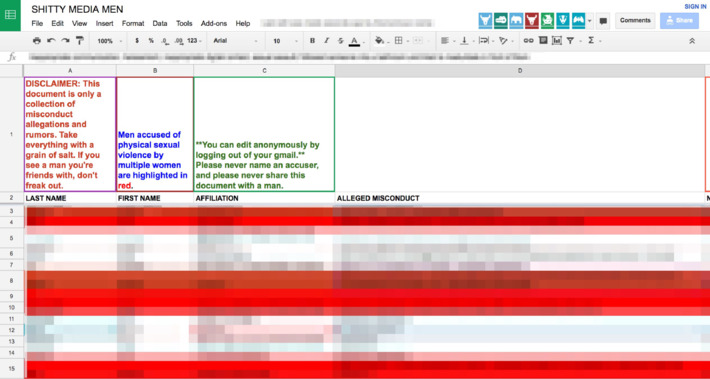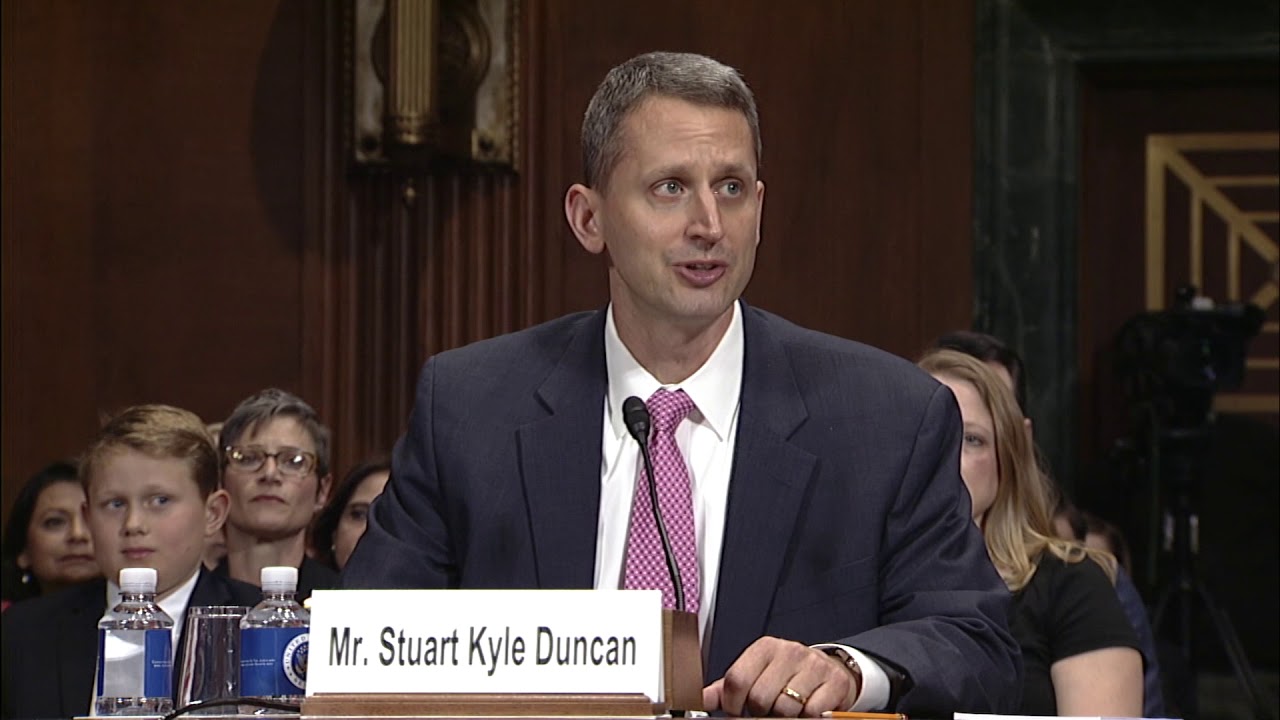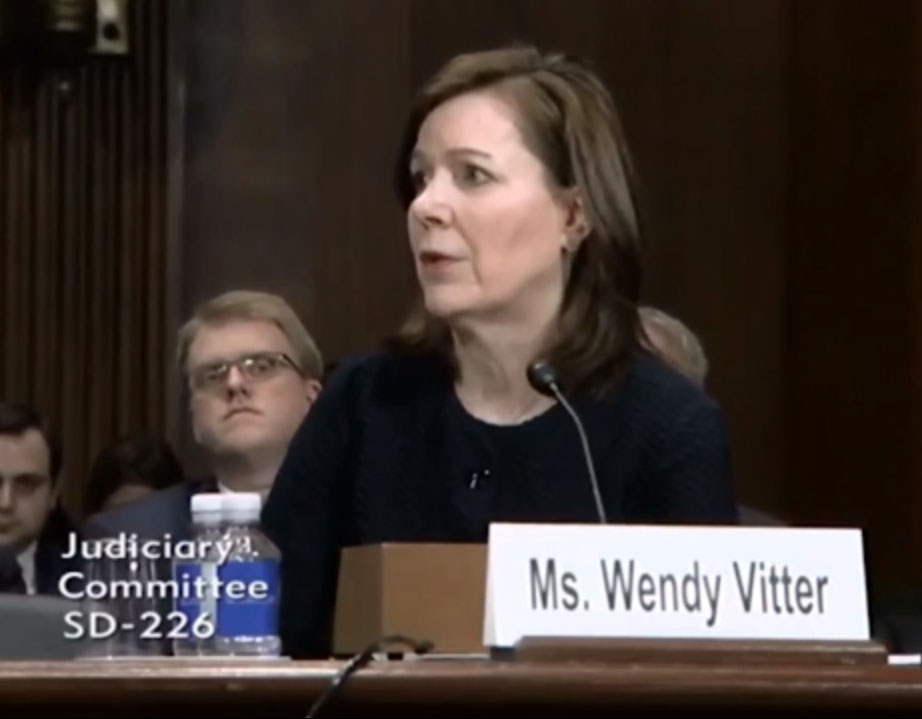Eric Dreiband, Trump’s Dangerous Nominee to Lead DOJ’s Civil Rights Division

 On September 6, 2017, the Senate Judiciary Committee will hold a confirmation hearing for Eric S. Dreiband, Trump’s nominee to be Assistant Attorney General of the Civil Rights Division at the U.S. Department of Justice. As the leader of the Civil Rights Division, the Assistant Attorney General (AAG) is one of the nation’s most senior officials tasked with protecting civil and constitutional rights. The AAG directs the Civil Rights Division’s interpretation and enforcement of a number of civil rights laws, including those vital to women’s opportunity and right to be free from discrimination, among them Title VI and VII of the Civil Rights Act of 1964 (including the Pregnancy Discrimination Act), Title IX of the Education Amendments of 1972, the Freedom of Access to Clinic Entrances Act (FACE), and the Fair Housing Act of 1968.
On September 6, 2017, the Senate Judiciary Committee will hold a confirmation hearing for Eric S. Dreiband, Trump’s nominee to be Assistant Attorney General of the Civil Rights Division at the U.S. Department of Justice. As the leader of the Civil Rights Division, the Assistant Attorney General (AAG) is one of the nation’s most senior officials tasked with protecting civil and constitutional rights. The AAG directs the Civil Rights Division’s interpretation and enforcement of a number of civil rights laws, including those vital to women’s opportunity and right to be free from discrimination, among them Title VI and VII of the Civil Rights Act of 1964 (including the Pregnancy Discrimination Act), Title IX of the Education Amendments of 1972, the Freedom of Access to Clinic Entrances Act (FACE), and the Fair Housing Act of 1968.
Dreiband’s nomination to lead one of the national’s premier civil rights agencies comes at a time when the civil rights of marginalized and vulnerable populations are under attack by federal and state policymakers. His nomination furthers Trump’s strategy of nominating individuals to lead agencies whose missions are fundamentally at odds with their beliefs. After securing senior leadership positions, these individuals go on to undermine the agencies’ authority, institutions, and activities. Dreiband’s record on legal rights and protections important to women, people of color, LGBTQ people, and other vulnerable communities, including those laws that he would be responsible for enforcing in the position to which he has been nominated, demonstrates that he should not be confirmed to this crucial position.
Dreiband has spent most of his legal career at law firms defending large corporations and institutions from employment discrimination claims, with a brief time in government during the George W. Bush Administration. Instead of serving as a champion of the rights of working people and marginalized people, throughout his career Dreiband has worked to narrow the scope of critical anti-discrimination laws, and has repeatedly expressed hostility to broad civil rights enforcement authority and important enforcement tools, rendering him unsuitable as a lead enforcer of civil rights laws.
Dreiband has worked to narrow the scope of rights and remedies under crucial sex discrimination laws that provide protection from pay discrimination, pregnancy discrimination, and gender identity discrimination.
- Dreiband testified against the Lilly Ledbetter Act, which restored protections against pay discrimination stripped away by the Supreme Court. He stated that he “did not believe that the bill would advance the public interest.”
- He successfully defended Bloomberg LP in a high-profile class action brought by the EEOC, in which it alleged that Bloomberg engaged in a pattern or practice of pregnancy discrimination and retaliation by, among other things, demoting and reducing the pay of female employees after they announced their pregnancies and after they took maternity leave.
- Dreiband has supported efforts to allow employers’ religious beliefs to override women’s right to insurance coverage of birth control, challenging the accommodation to the Affordable Care Act’s birth control benefit. The accommodation allows certain non-profit employers with religious objections to birth control to opt out of the benefit while still guaranteeing employees receive birth control coverage through their regular insurance plan. Dreiband represented religiously-affiliated employers and schools claiming the opt-out process violated the Religious Freedom Restoration Act (RFRA) — a claim rejected by a federal court of appeals.
- Dreiband defended the University of North Carolina when the state was sued by the Obama Department of Justice for violating Title VII and Title IX after it passed a law, HB2, limiting transgender individuals’ access to bathrooms. The Department of Justice under Attorney General Sessions dropped the lawsuit after North Carolina modified, but did not revoke, the law.
Dreiband has advanced positions that limit the ability of older workers to challenge employment discrimination.
Recent studies show that older women are significantly more likely than their male counterparts to experience hiring discrimination based on their age. Dreiband testified against legislation that would have made it easier for job applicants and employees over 40 years of age to challenge age discrimination under the Age Discrimination in Employment act (ADEA). In a recent case, Dreiband successfully argued on behalf of an employer that only employees, not job applicants, may bring disparate impact claims pursuant to the ADEA, thereby denying a class of job seekers protection from age discrimination.
Dreiband opposes efforts to remove barriers to the employment of individuals with criminal histories or convictions, who are disproportionately people of color.
Dreiband has attacked an EEOC guidance which advises employers that inappropriate consideration of arrest and conviction records in employment decisions could violate Title VII. He has criticized the EEOC for suing companies that assessed the criminal histories of job applicants, and has complained that the EEOC was focused on investigating and suing employers with policies seeking to exclude from employment “murderers, rapists, child molesters.”
Dreiband has attacked broad civil rights enforcement authority and important civil rights enforcement tools vital to uncovering and combatting systemic discrimination.
Like the Civil Rights Division, the EEOC plays a critical role in addressing patterns of systemic discrimination. But in litigation, testimony, and public statements, Dreiband has repeatedly advocated for expanding judicial review of the EEOC’s investigation and conciliation efforts, which would provide employers with new tools to avoid and delay judicial review of discrimination charges brought against them. He has also sought to limit the EEOC’s ability to challenge discrimination though litigation, particularly systemic discrimination. His attacks on enforcement authority and tools indicate he should not lead a vital civil rights enforcement agency like the Civil Rights Division.
Dreiband’s record is inconsistent with the Assistant Attorney General’s duty to protect civil and constitutional rights. He is likely to undermine antidiscrimination laws and enforcement efforts that are critical to equality and opportunity for women, people of color, LGBTQ people, and vulnerable and marginalized communities. We strongly urge the Senate to reject Dreiband’s nomination.




